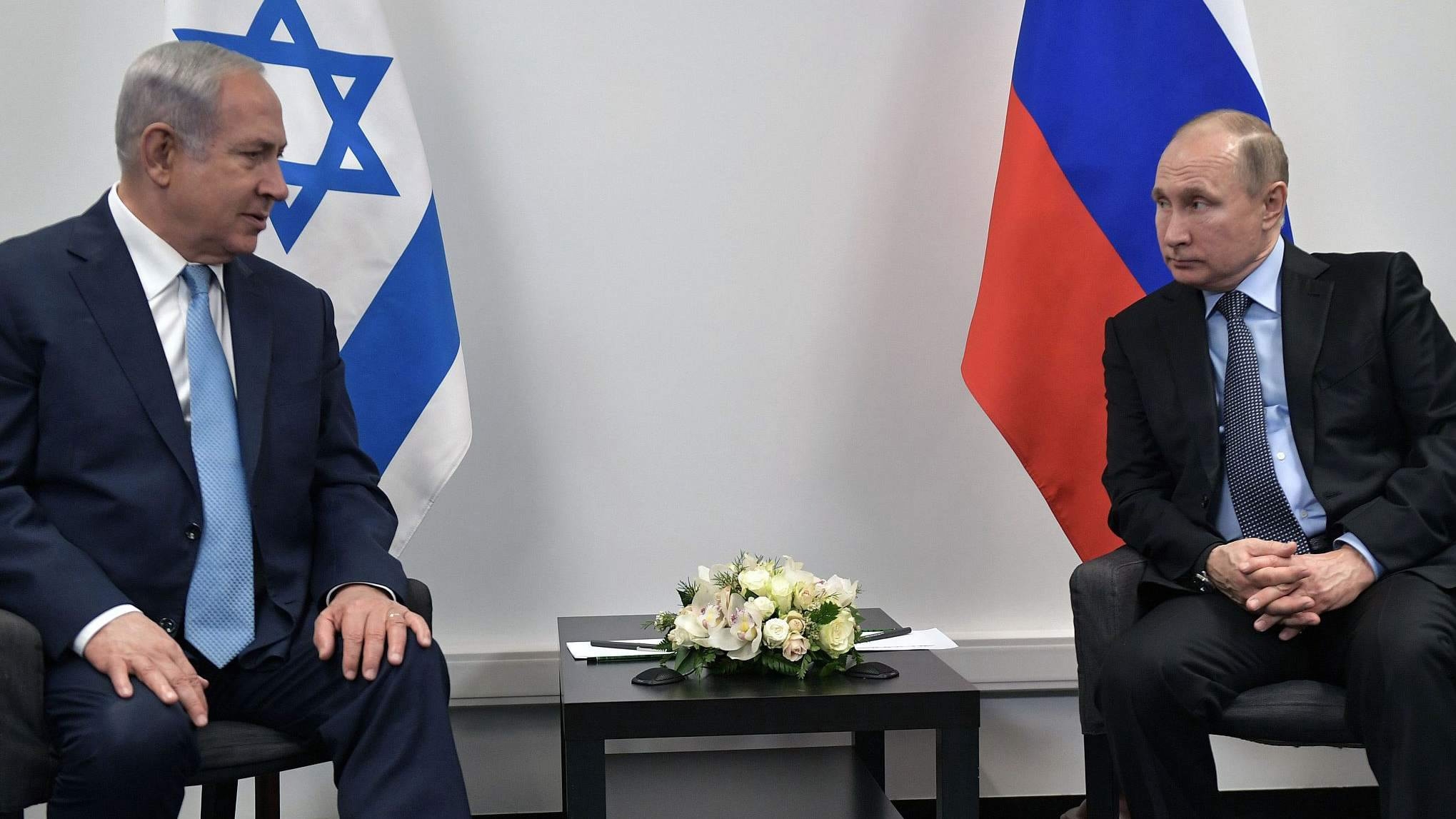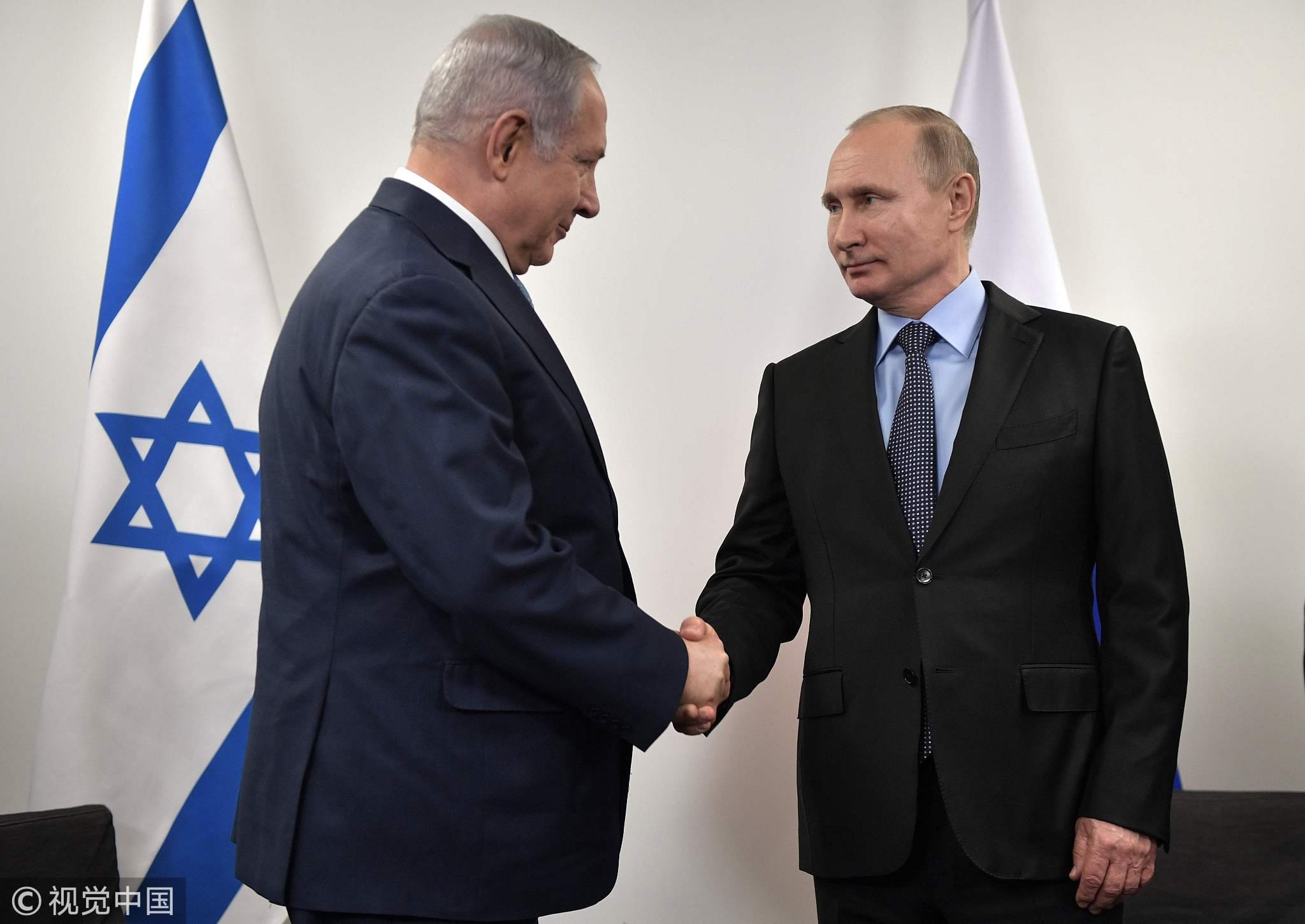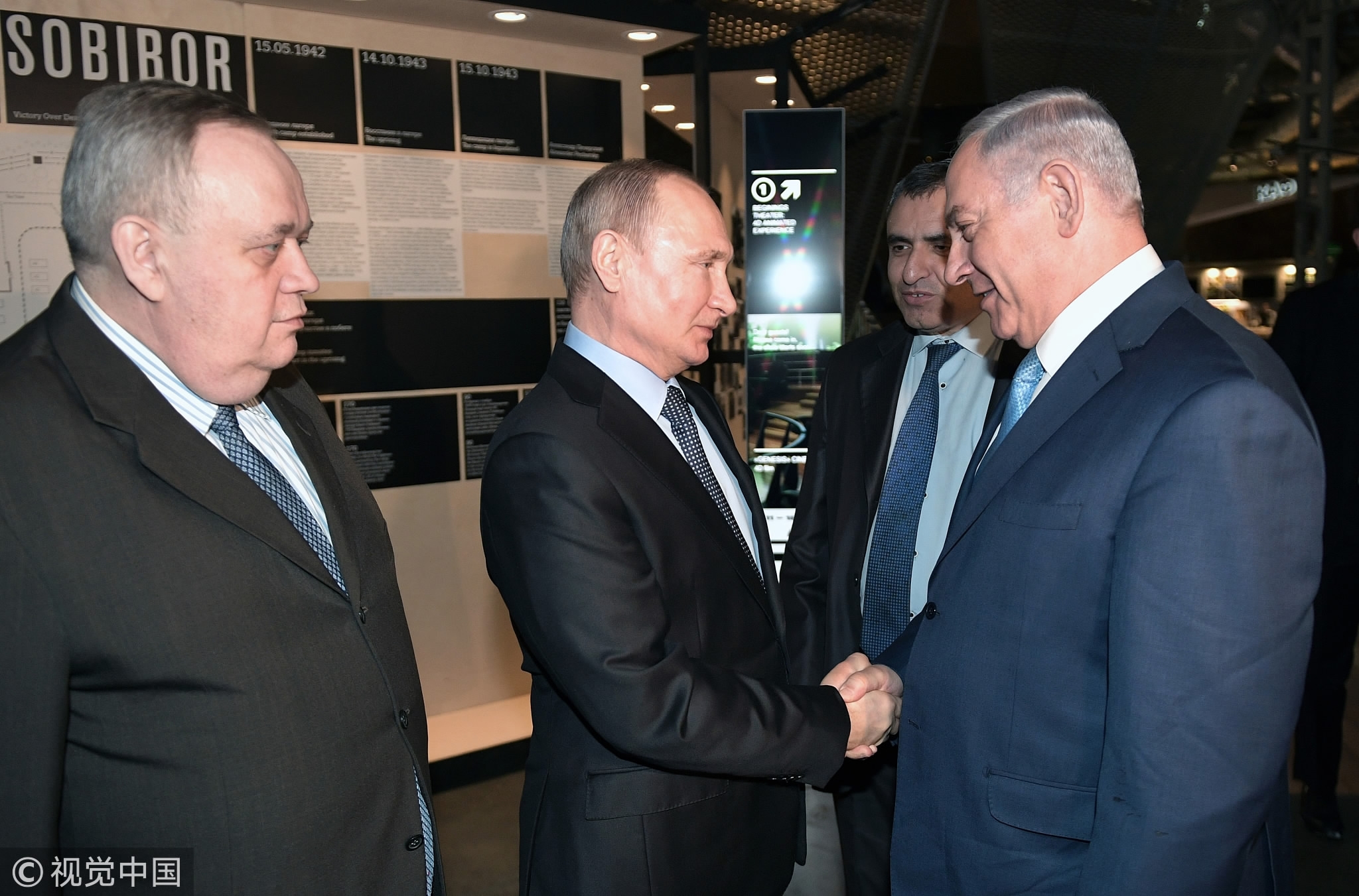
Politics
22:25, 29-Jan-2018
Israeli PM in Moscow: Drawing red lines
By Stephanie Freid

Israel’s Prime Minister Benjamin Netanyahu meets Russian President Vladimir Putin in Moscow on Monday. It’s a meeting diplomats say that will focus on the Middle East, Russia’s role in the region and Iran’s presence in Lebanon and Syria.
The timing – a day before the two-day-Russian-sponsored peace conference gets started in Russia’s Black Sea resort Sochi – is not coincidental.
Netanyahu wants to discuss and clarify numerous positions with President Putin and discuss some of the regional problems, per the Israeli government perspective.
Syrian opposition and Syrian Kurdish groups are boycotting the conference.

Russian President Vladimir Putin (R) meets with Israeli Prime Minister Benjamin Netanyahu at the Jewish Museum and Tolerance Centre in Moscow, January 29, 2018. /VCG Photo
Russian President Vladimir Putin (R) meets with Israeli Prime Minister Benjamin Netanyahu at the Jewish Museum and Tolerance Centre in Moscow, January 29, 2018. /VCG Photo
The issues
“While Russia is active in Syria, Russia… Israel is trying to declare some common ground on bilateral levels,” Zvi Magen, Israel’s former Ambassador to Russia said prior to the Moscow meeting.
According to Magen, the Netanyahu-Putin meeting is significant because it’s about “the future order in Syria.”
For Israel, one of the most pressing issues on the meeting agenda is discussing what the two sides can achieve together regarding Iranian presence in both Lebanon and Syria. Part of that exchange is outlining ideas of a “future order.”
President Putin will be defining his policies and politics in the Middle East and Syria with Israel’s prime minister.
Netanyahu is expected to convey Israel’s “red lines” regarding limiting Iranian capability in both Lebanon and Syria.

Russian President Vladimir Putin and Israeli Prime Minister Benjamin Netanyahu (R) during events in the Jewish Museum and Tolerance Center timed to the International Holocaust Remembrance Day and the anniversary of the complete lifting of the Nazi siege of Leningrad, January 29, 2018. /VCG Photo
Russian President Vladimir Putin and Israeli Prime Minister Benjamin Netanyahu (R) during events in the Jewish Museum and Tolerance Center timed to the International Holocaust Remembrance Day and the anniversary of the complete lifting of the Nazi siege of Leningrad, January 29, 2018. /VCG Photo
The two are also expected to discuss the Iran nuclear deal and US President Trump’s “Europe Ultimatum” to amend the current agreement.
Iran in Syria and Lebanon: The details
According to Israel government reports, there are approximately 80,000 Iranian-backed fighters currently operating inside Syria.
Those include Hezbollah; Iraqi, Pakistani and Afghan Shiite militia; Iran Revolutionary Guard members, and so on.
The problem, says Israel, is Iran’s overall control inside Syria and the extent of that control such as fighters, weapons and weapons movement.
What is the prime minister looking to achieve in Moscow?
Bilateral military coordination in Syria and discussion of ideas around Israel’s concerns that Iran is developing a missile in Lebanon. According to Magen, Israel’s prime minister wants Russia’s president to draw the “red lines" inside Syria that Israel is looking for, and present limitations to Iran in terms of Iranian military presence and weapons going to Israel’s enemies.

SITEMAP
Copyright © 2018 CGTN. Beijing ICP prepared NO.16065310-3
Copyright © 2018 CGTN. Beijing ICP prepared NO.16065310-3